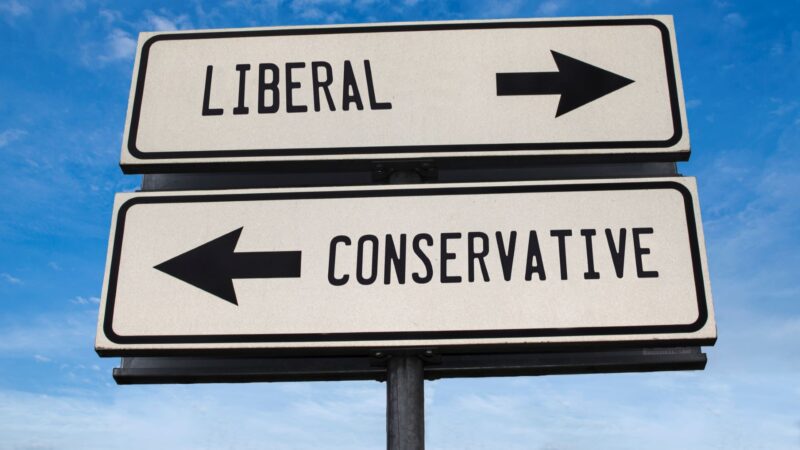Mass Exodus Of France’s Journalists Displaying The Image Of A Polarised Media: A Crisis Of Confidence, An Act Of Arrogance, And A Threat Of Economic Sustainance!
Far from being hostile, the gone journalists support diversity in the media, says one of the journalists who was a part of the exodus. Of course, if someone wants to start a far-right news and opinion outlet, they should be allowed to do so. However, people who departed the company oppose a complete shift in editorial orientation. Of course, the owner of a media outlet has the authority to pick an editor. However, the selection cannot be in complete opposition to the ideas of the great majority of the personnel and the publication's historical DNA.

Anything one-sided is not good, whether it is love or media! This recently stands justified as more than half of the journalists at France’s independent standalone Sunday newspaper have quit after failing to block the entrance of an editor with far-right links in a heated fight that has fueled worries of increasing further US-style polarisation of the country’s media. The mainstream paper’s 100-odd journalists called off a 40-day strike a week ago, the longest in France since the 1970s, when Geoffroy Lejeune, previously editor of the far-right weekly Valeurs Actuelles, took over as editor-in-chief.

The cause of the mass exodus of journalists.
The 34-year-old Geoffroy Lejeune is a vocal fan of xenophobic polemicist Eric Zemmour, who unsuccessfully ran in the French presidency in 2022 and advocated the racist “great replacement” ideology. He has been investigated 16 times for hate speech and convicted three times. Lejeune is also connected to Marion Maréchal, the niece of the far-right leader Marine Le Pen and a Zemmour supporter. Valeurs Actuelles, under his editorship, was fined for racial comments after picturing black MP Danièle Obono as a slave in chains.
Yes, these right-wing people believe that their social identities have slowly intertwined with their political identities. Hence, for these advocates, the issues of caste, creed, race and religion are more important than the real issues of climate change and population explosion!

The publication’s editorial board secured a reasonable agreement regarding a financial package on a satisfactory arrangement for journalists who wished to quit the paper but failed to secure numerous other protections, most notably on editorial independence and content. In particular, the company rejected the association’s demand to guarantee against publishing “racist, sexist, and homophobic statements and, more generally, any discriminatory or hateful content” in light of Lejeune’s prior behaviour.
What does the association of media people who resigned demand?
Far from being hostile, the gone journalists support diversity in the media, says one of the journalists who was a part of the exodus. Of course, if someone wants to start a far-right news and opinion outlet, they should be allowed to do so. However, people who departed the company oppose a complete shift in editorial orientation. Of course, the owner of a media outlet has the authority to pick an editor. However, the selection cannot be in complete opposition to the ideas of the great majority of the personnel and the publication’s historical DNA.
The conflict has fueled rising fears in France about a divided media. According to Christophe Deloire, general secretary of Reporters sans Frontières, a Paris-based media freedom NGO, it emerges that American-style polarisation is taking over. The ideological conflict between the two sides trumps the common ideals without which a republic – and, more broadly, democracy – cannot exist, resulting in the French equivalent of Trump supporters vs east coast media. This will compromise the plurality of opinion in the French press.

What Happens When Media Become Perniciously Polarised?
Media polarisation has intensified over the last half-decade, with liberal and conservative media outlets likely contributing to the trend. Modern people have access to an assortment of news sources in the twenty-first century, and to gain the attention of the audience and “the threat to journalistic business models” has transformed the way political news is generated and received. Many news stations are businesses that rely on ratings and commercials and, therefore, must be captivating to attract people’s attention.
As a result, the boundary between information and entertainment, in the name of race and religion, has become increasingly blurred. There is nothing wrong with offering opinionated pieces; nevertheless, polarisation towards the left and right can have disastrous consequences.
Conclusion.
It is vital to emphasise that while having solid perspectives and ‘opinion’ hosts is totally legitimate, it is critical that the opinion circles in the realm of facts and does not just spin its reality. Otherwise, the skewness towards one, either left or right, will be an act of arrogance resulting in a crisis of confidence and a threat to the country’s economic sustainance!




